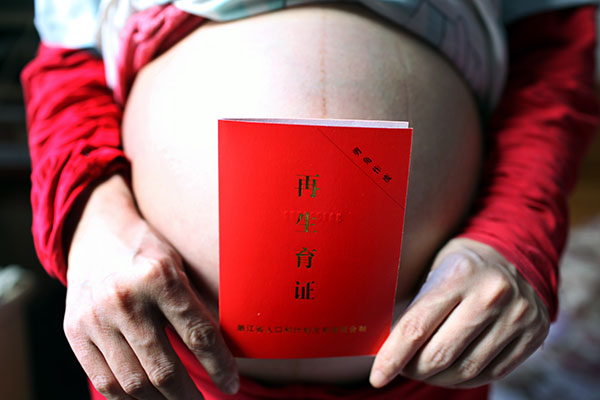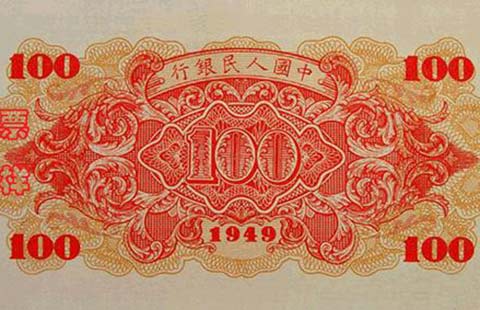Most couples want two children, top health official says
By WANG XIAODONG (chinadaily.com.cn) Updated: 2015-11-10 15:01
 |
|
A birth approval certificate for a second child is shown by a pregnant woman in Quzhou, Zhejiang province, in April last year.[XU YUANCHANG/CHINA DAILY] |
Most couples in China want to have two children once the national policy allowing a second child is implemented next year, China's top health authority said Tuesday.
Surveys show that married couples between the ages of 20 and 44 want to have an average of 1.93 children, Wang Pei'an, a deputy minister at the National Health and Family Planning Commission, said at a news conference today.
Currently, the number of women with one child who are of child bearing age is about 140 million, Wang said. More than 45 million of those are between 40 and 49.
China's top leadership decided last month to further relax the family planning policy by allowing all couples to have two children. In most urban areas in China, only couples in which at least one spouse is a single child are currently allowed to have two children.
Wang said the policy needs to be approved by China's top legislature next year before it becomes law. It is expected to bring a surge in new births over the next few years, though it will not significantly increase China's population in the long run, he said.
Two-child policy to increase potential economic growth rate
BEIJING, Nov. 10 (Xinhua) - China's new two-child policy could increase economic growth rate by 0.5 percentage points through reducing China's dependency ratio, said National Health and Family Planning Commission (NHFPC) Tuesday.
The change in policy is expected to mean over 30 million more people in the labor force by 2050 and an decrease of 2 percentage points in the share of elderly of Chinese population, said Wang Peian, deputy head of the NHFPC, in a press conference held on Tuesday in Beijing.
Statistics from the NHFPC shows the population aged between 15 to 64 in China is around 1 billion in 2015 and will reduce to 830 million by 2050.
According to Yang Wenzhuang, head of the Department of Community Family Planning with the NHFPC, the two-child policy will exert positive influence on China's economy in the long term as the babies born under the new policy grow into a workforce of high quality by 2050.
In short term, industries related to child-raising, such as maternity medical care, baby formula, child-care services, have been expected to grow further and faster in China, added Yang.
A surge in births when the new policy is ratified and implemented next year is expected, while the total population will only slightly increase with its peak to be reached at 1.45 billion in 2029, said Wang.
Official data also indicates 76 percent of all couples conceiving a second child under the new policy will be urban citizens.
Only 10% apply for second baby
China Daily
Tradition of large families has changed in big cities with economy and govt policy, expert says
Most couples don't want to expand their families, if the low number applying for a second child in Beijing under today's rules is an indicator of parental thinking.
Even if a couple is eligible, under the current policy, for a second offspring because one parent is an only child, only about 10 percent seek more children, according to data released on Friday by the Beijing Municipal Commission of Health and Family Planning.
By the end of October, 55,851 qualified couples applied to health authorities in Beijing to have a second child since the city adopted the policy in February last year, the commission said.
That is roughly one-tenth of the estimated 550,000 couples who are eligible under that standard, set in 2013. [Full story]
- Attacks in Paris prompt China to boost security
- Cold front to lift smog gradually by midweek
- High-speed train for extremely low temperatures wins approval
- 110 firms face penalties for failing to reduce pollution
- Charity law will encourage donors, experts say
- New town plan advances in Beijing
- 'Solid evidence' will be sent to break US fugitive gridlock
- Survey reveals romantic divide between North and South China
- High-ranking officials under graft probe
- Shanghai deputy mayor probed on suspicion of discipline violation







